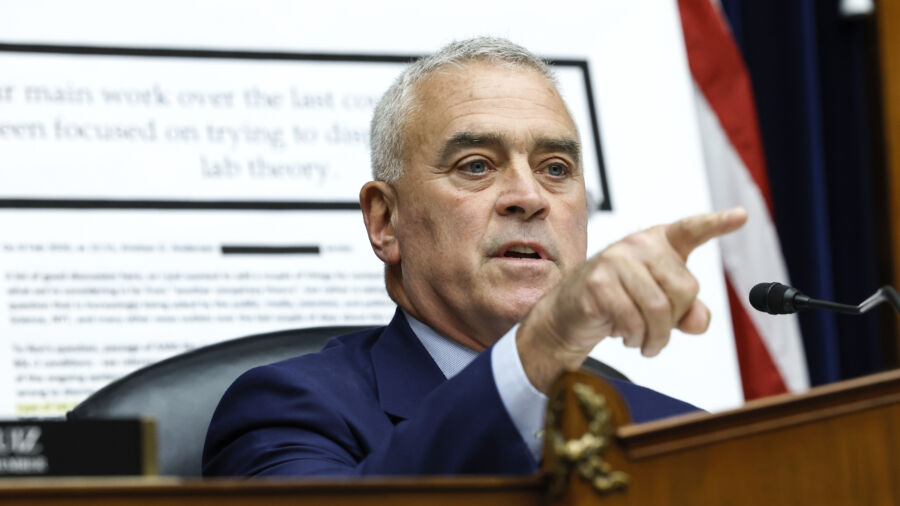Rep. Brad Wenstrup (R-Ohio), the chairman of the House Select Subcommittee on the Coronavirus Pandemic, wants to know what the U.S. Department of Justice is doing to recover an estimated $280 billion in U.S. COVID-19 relief spending that allegedly flowed to criminals inside and outside the United States.
On Tuesday, Mr. Wenstrup sent a letter (pdf) to Attorney General Merrick Garland, asking that he and the DOJ provide a full account of all current and past investigations into the misallocation of U.S. taxpayer funds as part of COVID-19 pandemic relief programs. Mr. Wenstrup cited a June Associated Press analysis, which estimated that around $280 billion of U.S. COVID-19 relief spending was lost to fraudulent schemes carried out both inside and outside the country.
Mr. Wenstrup further cited a 2021 NBC News report, claiming much of the COVID relief that was lost to fraud went to Russian, Chinese and Nigerian criminal organizations.
“Some of these fraudulent actors were based outside the United States and may involve international criminal organizations. Estimates imply that at least half of all stolen COVID-19 relief funds went to Russian, Chinese, and Nigerian criminals,” he wrote.
The U.S. government has been working to account for more than $4 trillion in COVID-19 relief spending. In addition to the $280 billion the Associated Press believes was lost to fraud, the media publication estimated another $123 billion was simply wasted or misspent.
In a March 2022 press release, the DOJ announced it had recovered about $8 billion worth of COVID-19 relief funds lost to fraud through a combination of criminal prosecutions and civil enforcement actions. That DOJ fund recovery effort amounts to about three percent of the money that may have been lost to fraud, and Mr. Wenstrup said it’s unclear just how much the DOJ has recovered from criminal actors living abroad.
“It is highly concerning that possibly billions of taxpayer dollars intended to help Americans suffering the effects of the COVID-19 pandemic were stolen by organized criminal rings in foreign countries,” the Republican lawmaker wrote. “Therefore, we write today to better understand the full scope of this problem and what actions the Department has taken to investigate international COVID-19 relief program fraud and hold these foreign actors accountable.”
Mr. Wenstrup requested the DOJ provide a country-by-country account of all current and closed COVID-19 fraud cases and dollar value estimates of COVID-19 relief spending they believe went missing in these fraud cases.
The DOJ is continuing to bring new cases to recover COVID-19 relief funds. Last week, the department announced it had conducted a nationwide enforcement effort resulting in 718 enforcement actions against 371 defendants, for alleged fraud offenses that resulted in the misallocation of around $836 million.
Even with this latest DOJ effort, the U.S. is still well short of recovering all of the funds that are likely missing as a result of COVID-19 fraud schemes. It could take years to recover all of those funds, assuming they can all eventually be recovered.
“The COVID-19 public health emergency may have ended, but the Justice Department’s work to identify and prosecute those who stole pandemic relief funds is far from over,” Mr. Garland said upon announcing the latest DOJ anti-fraud efforts last week.
Legislation extending the statute of limitations to prosecute pandemic-era fraud cases has enjoyed broad bipartisan support.
During last week’s anti-fraud announcement, Deputy Attorney General Lisa Monaco announced the department had started a new COVID-19 Fraud Enforcement Strike Force in Colorado and another one in Delaware.
“The two new Strike Forces launched today will increase our reach as we continue to pursue fraudsters and recover taxpayer funds, no matter how long it takes,” Ms. Monaco said.

